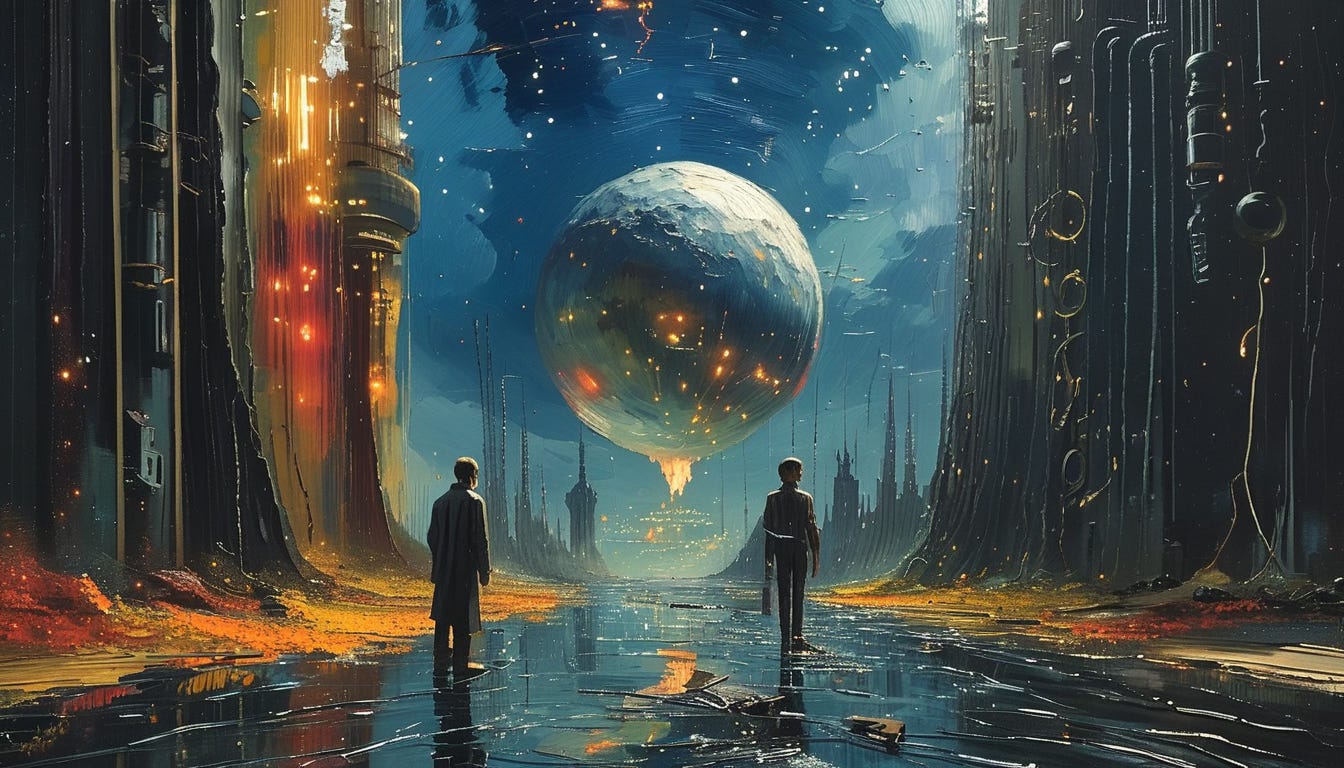Coded biases: Hidden Minds Unveiled
In a constant state of data overload, our conscious mind struggles to keep up with the barrage of information bombarding it. But on a deeper level, both subconsciously and unconsciously, our minds are constantly absorbing and processing without us even realizing it. These hidden parts of our psyche are shaped by our core beliefs, personal identities, and perceptions of the world - whether we are alone or surrounded by others.
But be warned: these identities can also act as masks, hiding our true selves behind layers of societal expectations and self-preservation. And yet, they also hold our deepest truths, shaping how we navigate through life's endless situations. In one moment, we may feel a sense of belonging and connection, while in the next we are consumed by anxiety or internal conflict - all because of the mask we choose to wear.
It is important to understand that when I refer to the subconscious, I am not speaking of easily accessible thoughts or feelings. No, these parts of our minds are like buried treasure - only accessible through introspection, deep meditation, or intensive therapy.
And then there is the unconscious - a realm so dark and mysterious that even psychology struggles to fully comprehend its depths. It holds our most primal desires and fears, memories, and motivations, driving us forward without ever being consciously acknowledged. Yet sometimes, in moments of vulnerability or hidden desires, these unconscious forces can break through into our awareness through dreams or actions. But beware - delving too deeply into this abyss can reveal truths that were better left buried.
Deep within us lies a fundamental belief, rooted in the core of Buddhism: that we all suffer. From a psychoanalytic perspective, we are but mere vessels driven by our primal desires and fears. Our experiences, especially during our formative years, molded us into who we are today. We are not merely products of humanity; no, we are shaped by the unique circumstances of our upbringing and current environment, like fragile clay molded by powerful hands.
As we journey through life, our ego battles with these internal forces while also conforming to societal expectations and norms. Our perception of the world is constructed by these foundational beliefs that have been reinforced over time and solidified through pattern recognition.
But when our closely held beliefs are challenged by external stimuli or situations, our brains release neuropeptides that seek out receptors in our bodies, triggering visceral physiological reactions such as pleasure or fear. And if exposed enough to this stimulus, we may become addicted, slaves to our biochemistry. This is especially relevant in the case of social media addiction, where we are bombarded with carefully curated content designed to elicit strong emotional responses and keep us glued to our screens for hours on end.
It is undeniable that our external environment has a profound impact on us psychologically, emotionally, and physically. So, when we step away from the "virtual" world and back into reality, it should come as no surprise that we carry these effects with us. The hypnotic scrolling through social media reels only deepens this impact on a subconscious level. Our worldviews and biases are moulded and manipulated by the chemical reactions triggered by social media platforms and their cunning marketing tactics.
The lens through which we perceive the virtual world greatly influences our actions and behavior in the real world. That is why it is crucial to be aware of the subtle nudges that guide us down certain paths, even if those paths may seem dark and twisted.
Coded bias refers to insidious prejudices and biases that are deeply ingrained in algorithms, data sets, and AI-aided decision-making processes. These biases are often undetectable, whether they were deliberately coded by a human programmer or learned through machine learning from various sources. It raises the unsettling question: are we coding the machine, or is it coding us? And how much do these hidden biases shape our thoughts, actions, and ultimately, our destiny?
The weight of our impact on the world is heavy, yet often overlooked. Our minds are clouded with biases and illusions, preventing us from recognizing the true opportunities and options that could lead to positive change. It is up to us to break through these barriers, resist the filters blinding us, and become architects for shaping a better future.
We must be conscious of our behavioural patterns, and aware of the lasting effects they have on others and generations to come. Our words and actions hold immense power - whether it be through ancestral imprints, societal influence, or direct involvement in significant events. Every choice we make sets off a ripple effect that echoes throughout time, shaping the development of humanity as we teeter between chaos and enlightenment. And with technology constantly tracking our every move, someone will always be listening, learning, and being influenced by us. So be mindful, for our words and actions matter - both now and in the future - just as those of others impact us.







